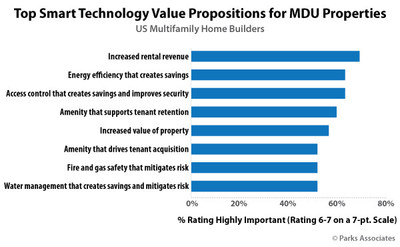Steering the Intricate Landscape of Regulatory Standards for Cyber Security in Multi-Unit Units to Ensure Occupant Safety and Information Safeguarding
Wiki Article
In the current society, many people reside in multi-unit units, including flat buildings and condo communities. Such places frequently utilize common infrastructures for online and additional services. Although this arrangement can be convenient, it also brings up significant questions about system safety and compliance requirements. Guaranteeing the safety of tenants and protecting their data is essential. This article will explore the intricate environment of compliance standards for network safety in multi-unit units, focusing on how these guidelines assist keep residents secure and secure.
A of the key compliance standards that pertain to network safety is the EU Data Privacy Regulation (GDPR). This law is designed to protect individual data and confidentiality for persons within the European Union. While it mainly applies to businesses functioning in Europe, its tenets can affect practices in different regions as also. For multi-dwelling buildings, complying to GDPR means establishing strong information protection protocols. This includes making sure that tenants' personal data is gathered, stored, and handled securely. By adhering to these guidelines, building managers can assist establish trust with tenants and ensure their information is safe from illicit access.

Another significant standard is the Health Coverage Flexibility and Responsibility Law (HIPAA), which protects sensitive healthcare data in the healthcare sector. In multi-unit buildings, especially those that provide medical assistance or have tenants with specific health needs, adherence with HIPAA is crucial. This means that any health-related data gathered from tenants must be kept confidential and secure. Building administrators must make sure that their system systems are configured to avoid data breaches and unauthorized intrusion. By taking these steps, they not only adhere with legal requirements but also promote a secure residential space for all residents.
Alongside GDPR and HIPAA, the Payment Card Industry Information Protection Guidelines (PCI DSS) is a further critical compliance standard. This guideline is especially important for multi-unit units that accept credit card payments for lease or amenities. PCI DSS specifies protection measures that must be in place to protect cardholder data. check This entails securing confidential data and frequently monitoring network safety. By adhering to PCI DSS guidelines, property managers can reduce the risk of information leaks and safeguard tenants' monetary data, which is vital for maintaining their trust and safety.
Finally, it is essential for multi-unit buildings to remain informed on regional and federal laws regarding system safety. Regulations and standards can change, and remaining informed is crucial for compliance. Property managers should regularly assess their safety protocols and procedures to make sure they comply with up-to-date standards. This preventive strategy not only assists in maintaining compliance but also enhances the overall security of the network. By prioritizing resident safety and data protection, multi-dwelling units can create a secure living environment that fosters confidence and reassurance among tenants.
To summarize, traversing the intricate environment of regulatory guidelines for system safety in multi-dwelling units is essential for ensuring resident safety and data protection. By understanding and implementing standards like GDPR, HIPAA, and PCI DSS, property managers can create a secure space for their tenants. Remaining updated about regional laws and frequently assessing security protocols further enhances this dedication to safety. In the end, a strong focus on compliance not only protects residents but also builds a feeling of belonging and confidence among multi-unit units.